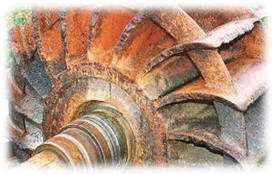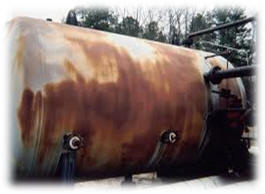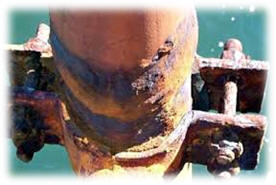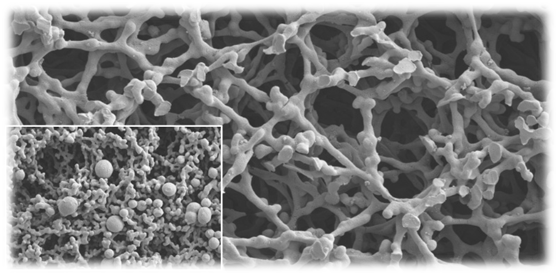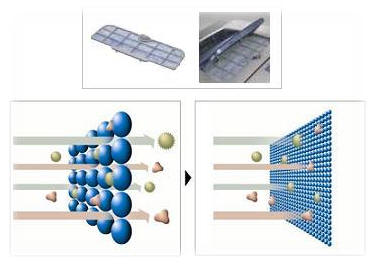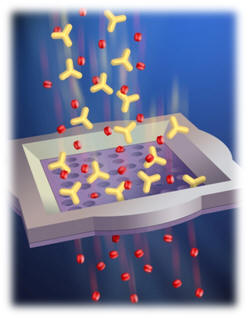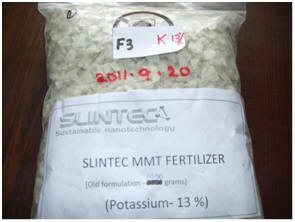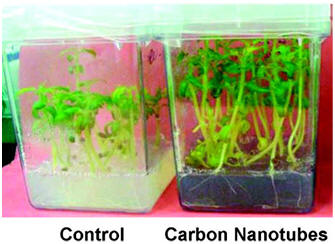|
The cooperation between the Nanotechnology and Advanced Materials Research centre, Ministries and State departments The Nanotechnology and Advanced Materials Research Center has made a lot of agreements and contracts with important institutions. This was due to the knowledge and experience of the academic staff of the center that help them to solve all the problems in different fields such as industry, petroleum, environment, agricultural and health. The agreements and contracts as below: Issues of Companies The Center has proposed solutions for the problems of the Ministry of Industry and Minerals where the academic staff of the center has come out with scientific studies including the research methodology, the required equipment for this research and its cost. The names of the researches, problems, and the benefits institutes and the team member are as below. Also, we will mentioned about some of these researches such as the preparation of thermal insulation materials with high porosity ranging from (60-90), using different techniques. Also, the production of thermal concrete with density of 0.5 to 1 gm/cm3. In addition, the production of thermal bricks containing the ratio of zirconium oxide in line with the requirements of the General Company for the manufacture of glass, and ceramics. This research has developed as a plan for the State Company for the Manufacture of Refractories affiliated to the Ministry of Industry and Minerals.
It was making plans to study the corrosion problems for equipment of General Company for Vegetable Oils. Also, the use of different methods to measure the amount of heat stress such as the pyramids method (Zakr) which is used standard cones having different chemical composition with different degree of fluidity and resistance to different temperatures. In this method, the cones was placed on thermal disc and was inserted into the oven to measure the degree of thermal that can tolerate through the form of curvature incident in those cones and through their respective class pyramid or cone and the quality of bending. Also, it determined the degree of heat tolerate heat oven to this oven. This research is in support of the State Company for Mining Industries. The work of the requirements for testing and characterization of materials and devices at the General Company for Electrical Industries was studied. Also, the requirement of equipment needs to set up a laboratory was identified. In addition, the infrastructure required, develop plans, specifications and methods of operation of screening devices, how to deal with the results and order, style save the results and methods of classifying, deduced and training angel located on those equipment, how to deal with the results, and the way linked with some to get to the solutions to the problems the industry that the presence of the developmental sector of the company. There are many private production of nanomaterials powders depending on the characteristics of producing materials such as temperature and degree of complexity. The appropriate methods for economic and industrial purposes are: Sol Gel method and the mechanical milling method using a nanoparticles mill and deposition chemical method that made after the production process. The heat treatment process involves the process of sintering, calcination and testing materials produced with the General Company for Mining Industries. It has been planned with the State Company for Mining Industries to develop the properties of asphalt, where the asphalt has the properties that make it soft and liquid at high and solid at high temperature and solid and fragile at low temperatures. Thus, the asphalt used in the mixtures eligible to work in the different conditions for the desired area. The asphalt is mixed with aggregates which consist of gravel, sand and filler to obtain a mixture of asphalt, which is used later for the road. In addition, there are many additives that are mixed with asphalt to improve the properties cruise such as cement, lime, polymers, rubber, waste, and nanomaterials.The Scientific Cooperation between the University of Technology/ Nanotechnology and Advanced Materials Research Center and The Ministry of Industry and Minerals/ General Company for Electrical Industries Under the Sponsorships of the President of the University of Technology (Prof. Dr. Amin Douai Thamer) and supervisions of the director of the Nanotechnology and Advanced Materials Research Center (Prof. Dr. Adawiya Juma’a Hayder), the agreement has been held on 2.10.2014. This agreement is carried out the preparation of nanomaterials that used as a filter for air conditioners.
The Scientific Cooperation between the University of Technology/ Nanotechnology and Advanced Materials Research Center and the Ministry of Science and Technology / Department of Agriculture Pest Under the Sponsorships of the President of the University of Technology (Prof. Dr. Amin Douai Thamer) and Supervisions of the Director of the Nanotechnology and Advanced Materials Research Center (Prof. Dr. Adawiya Juma’a Hayder), the agreement has been held on 2.10.2014 on 7.9.2014 entitled: ((Preparation of Nano Fertilizer)) It deals with the preparation of nano fertilizer and the protection of plants. This type of fertilizer is considered as the latest one. Where, it used the nanocolloidal solution widely to fertility and resistance the plant to biological and non-ecological environmental factors. This nanomaterial will increase the rate and ratio of germination as well as the length of the roots and the biomass along the period of growth. Also, it will increase the effectiveness of photosynthesis and metabolism of nitrogen in the field crops. In addition, it will increase the resistance of plant to disease and the quantity and the quality of the plant. In this case, the importance of nanoparticles is to remove the free root as a result of exposure to environmental factors that cause the oxidation of unsaturated lipids, damage DNA and increase the effectiveness of antioxidants.
|

